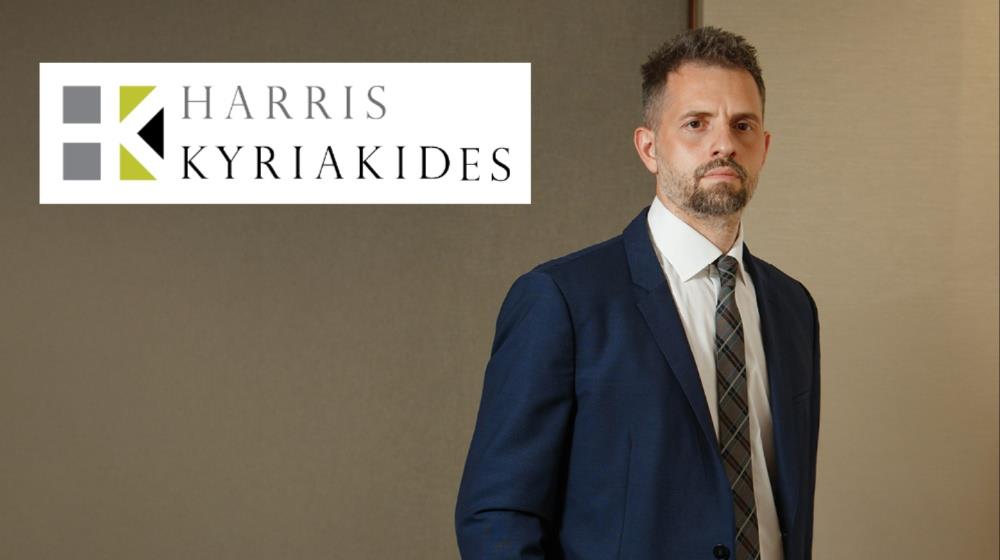"Technology – and particularly AI – will transform document-heavy and process-driven work such as due diligence, contract review and standardised corporate filings. AI is already capable of performing many of these tasks faster and more accurately than humans. We see this as an opportunity rather than a threat," Dr. Nicolas Kyriakides, Partner, Harris Kyriakides says.
In a recent interview with GOLD magazine, he also notes, "Technology should not be seen as an optional add-on – it is a necessity," referring to the bold reform of the justice system being the biggest challenge the sector is currently facing.
Kyriakides, among other things, also talks about changing client expectations, noting, "Clients are increasingly focused on predictability, efficiency and proactive risk management. They want more transparency on costs and are asking for innovative fee structures."
Evolving client expectations, disruptive technology and growing competition are forcing law firms to rethink the way they deliver legal services. How is your firm adapting to this new reality?
At Harris Kyriakides, we recognise that the traditional model of legal service delivery is no longer sufficient on its own. Clients expect faster turnaround, cost-efficiency and solutions tailored to their unique needs.
We have embraced technology and, more recently, artificial intelligence (AI) to automate routine tasks, enhance project management and improve communication with clients. We are actively encouraging our lawyers to use AI tools responsibly and effectively in order to deliver better quality and more efficient services to clients. AI enables us to handle large volumes of data, improve document review accuracy and provide deeper insights that ultimately benefit our clients.
We have also made a conscious shift towards a solutions-based approach rather than a purely advisory one and are investing in training our people in areas beyond pure legal analysis so that they can offer added value. Change is never easy for the profession but it is a reality we must adapt to if we want to remain relevant.
How have client priorities evolved and, looking ahead, which areas do you expect to demonstrate the most rapid growth?
Clients are increasingly focused on predictability, efficiency and proactive risk management. They want more transparency on costs and are asking for innovative fee structures.
In terms of growth areas, I expect to see sustained demand for regulatory work, especially as the global regulatory environment becomes more complex.
Additionally, the regulation of lobbying in Cyprus has also increased the demand for public affairs services, as clients require clear guidance and representation in navigating their relationships with public institutions within the framework of the new rules.
The local legal profession is facing internal headwinds, from the stalled e-Justice system to the uncertainty surrounding the proposed Single Supervisory Authority. In your view, what are the most pressing challenges that need to be addressed?
The biggest challenge we face is a lack of boldness in reforming the justice system. Court digitalisation has been delayed for years and this is eroding both public trust and Cyprus’ attractiveness as a business hub. Technology should not be seen as an optional add-on – it is a necessity. Other jurisdictions have successfully implemented e-courts and digital workflows; there is no reason why Cyprus should lag behind.
In addition, we urgently need better-quality regulation, especially when it comes to corporate and financial supervision. There is sometimes a rush to legislate without sufficient stakeholder consultation, resulting in inconsistencies and unnecessary complexity. This harms the competitiveness of our legal sector.
The profession itself must also evolve. We must be more open to alternative service models, new technologies (including AI) and collaboration with other disciplines if we want to thrive in a changing environment.
How are international geopolitical tensions, trade-related uncertainty and other problems shaping the business and investment landscape in Cyprus?
Cyprus, as a small and open economy, inevitably feels the ripple effects of global volatility. However, this can also create opportunities. We have seen renewed interest from investors seeking a stable, EU-based jurisdiction with strong professional services. There is growth potential in energy, real estate, renewable infrastructure, technology and dispute resolution services as companies diversify their operations.
At the same time, we must be mindful of over-reliance on certain sectors or client groups. The 2013 financial crisis taught us the dangers of concentration risk, yet I fear we still underestimate this. We must also invest more in regional diplomacy and economic ties, to reinforce Cyprus’ position as a bridge economy.
Finally, which aspect of the legal industry do you expect to be most disrupted by technology over the next five years and how are you preparing for it?
Technology – and particularly AI – will transform document-heavy and process-driven work such as due diligence, contract review and standardised corporate filings. AI is already capable of performing many of these tasks faster and more accurately than humans. We see this as an opportunity rather than a threat. At Harris Kyriakides, we are embracing legal tech and actively promoting the use of AI to handle routine tasks so that our lawyers can focus on higher-value strategic work.
Ultimately, technology can help us deliver better justice, faster and at a lower cost but it requires decision-makers – both in law firms and in the broader justice ecosystem – to be bolder and more willing to embrace change.
This interview first appeared in the August edition of GOLD magazine. Click here to view it.









